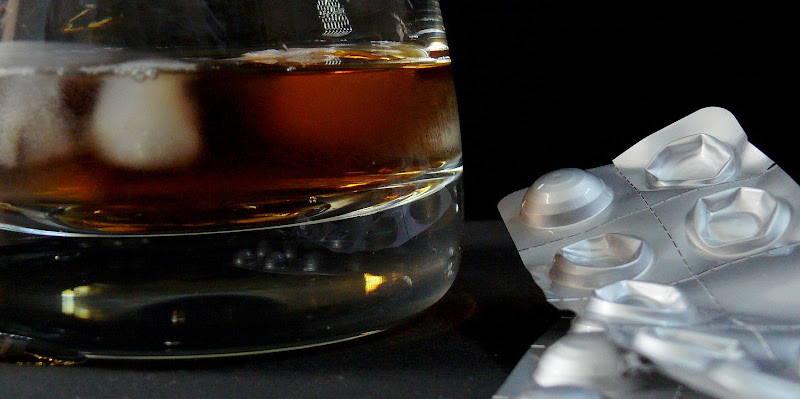The Dangers of Mixing Gabapentin and Alcohol
August 16, 2021 - Substance Abuse
Medically Reviewed by Brooke McKenzie

Written By
DreamLife RecoveryAny new prescription drug comes with potential risks and potential side effects. Gabapentin, also a prescription medication for epilepsy and other neurological issues, is no exception. While gabapentin is safe to take as prescribed, mixing it with alcohol can have significant side effects and possible interactions. Drinking alcohol while taking gabapentin can cause drowsiness, dizziness, and difficulty concentrating, to name a few side effects.
Gabapentin and Its Uses
Gabapentin, a nonsteroidal anti-inflammatory medication, is used to treat a variety of medical and neurological conditions. Although it has shown competent promise to remedy severe debilitating neurological disorders such as Parkinson’s disease, seizures, and migraine headaches, gabapentin is also used as an anticonvulsant or anti-seizure medication.
How Gabapentin Works
The drug works directly with the nervous system in the brain by inhibiting the neurotransmitter GABA or Gamma-aminobutyric acid. This neurotransmitter helps with the communication between the nervous system and the brain, but a decreased nervous system will send and receive delayed messages, which may also create some side effects. In short, Gabapentin acts as a primary nervous system depressant; thus, mixing it with alcohol can lead to some undesirable results.
Effects Of Mixing Gabapentin and Alcohol
Consuming gabapentin and alcohol at the same time is not advised because it may cause a series of severe side effects, such as:
- Eye and speech-response delays
- A decreased state of consciousness
- Respiratory distress
- Vomiting or nausea
- Diarrhea
- Dizziness, drowsiness, or fatigue
- Worsening depression
- Suicidal thoughts
- Mood and behavioral changes
- An impairment in bodily functions
When used for an extended period, Gabapentin can also develop physical dependence, and stopping its use can result in more withdrawal symptoms such as anxiety, confusion, and, in rare cases, seizures.
Substance interactions – in this case, gabapentin and alcohol – can reduce the effectiveness of a prescription or complicate a situation by causing more unexpected side effects, such as a risk of falling. According to clinical studies, it is possible to miss a dose or even double a dose already taken. During a confused state, someone may even inadvertently take the wrong medication, and life-threatening consequences can also occur in extreme situations. Moreover, long-term abuse of this combination of the two substances can cause permanent and irreparable damage to the nervous system, which then leads to highly compromised bodily functions.
Studies on Gabapentin Interactions With Alcohol
There aren’t enough studies on the adverse side effects of gabapentin and alcohol on the liver because the medication is relatively new in the medical field. However, a research study found that patients who drank alcohol before taking Gabapentin experienced more severe side effects than those who did not take the two substances together. On the other hand, this was only research on patients whose doctors prescribed them the substance to treat specific symptoms of alcoholic hepatitis.
Another study found that “evidence from single-site studies lend[s] support to the safety and efficacy of Gabapentin as a novel treatment for alcohol use disorder, with unique benefits for alcohol-related insomnia and negative affect, relative to available treatments.” Until further discoveries, though, it is safer to consult with your doctor and avoid combining these substances.
Gabapentin and Alcohol Detox, and Withdrawal
Individuals seeking treatment for an alcohol use disorder or gabapentin addiction typically begin with a medically supervised detox program because withdrawal symptoms can be severe, uncomfortable, and, ranging on the dependence level, even fatal. A medically supervised detox program offers a safe, temptation-free, and comfortable environment in which to withdraw from addictive substances. It also provides care and support from medical professionals who can administer any medication required during the withdrawal process.
Detox programs typically last a few days, but this can vary depending on the individual’s condition. The process also exhibits some withdrawal symptoms, including the following:
- Hyperthermia
- Seizures
- High blood pressure
Gabapentin and Alcohol Addiction Recovery
Most detox facilities and alcohol addiction treatment centers use medication known to reduce cravings and make the overall withdrawal process more manageable. Common drugs include acamprosate calcium and naltrexone. Naltrexone is an anti-relapse medication that works by blocking the euphoric effects of alcohol on the body and mind. On the other hand, acamprosate calcium helps reduce the physical and mental stress an individual may experience after abstaining from alcohol. Both drugs work to alleviate withdrawal symptoms and aid in the maintenance of sobriety.
Our trained staff will assist the patient at every stage of the detoxification process to help them remain stable by designing a detox plan customized to their needs. So, if you’ve been hesitant to start the alcohol detox because you’re concerned about the withdrawal symptoms, alcohol detox at home may be the perfect option for you. You do not need to join a substance abuse program; instead, you can maintain your usual sense of normalcy while going through this difficult stage of the recovery process with our professionals.
Alcohol Rehab in Pennsylvania
If an individual taking this medication intends to drink alcohol or take other supplements, they should consult their doctor first. When patients consume alcohol before taking medication, it can lead to severe complications: a depressant and an anticonvulsant drug combination can be extremely dangerous.
If you or a loved one are struggling with addiction and need help, the expert clinical team at DreamLife Recovery is here to help with our alcohol treatment program and prescription drug rehab. Located just outside of Pittsburgh, Pennsylvania, our addiction specialists are here and ready to help you get on the road to recovery. Contact our admissions team if you’d like to know more about our treatments, facility, and get ready to get your dream life.







